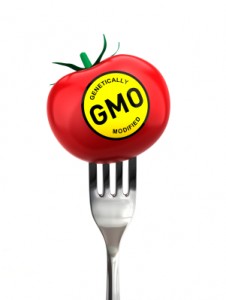 Proposition 37, the California ballot measure that would have required labeling of genetically engineered foods was defeated by a narrow margin this week due to, according to its opponents, agri-business deception and dollars.
Proposition 37, the California ballot measure that would have required labeling of genetically engineered foods was defeated by a narrow margin this week due to, according to its opponents, agri-business deception and dollars.
The “No on 37” campaign, funded primarily by agro-chemical giants such as DuPont and Monsanto outspent the “Yes on 37” campaign five-to-one. Previous to the opposition’s $46 million media and campaign blitz, proponents had held a consistent two-fold lead in the polls. But voters ended up rejecting the measure 53.1 to 46.9 percent.
“I think this election was largely a story of money. We didn’t have the funds to compete,” Stacy Malkan, media director of Yes on 37, said on a Wednesday press call. “Ultimately, we were not able to get the truth out to voters.”
Dr. Henry I. Miller of the Hoover Institution disagreed. Representing the Hoover Institution, a conservative think tank at Stanford University, Dr. Miller said, “California voters clearly saw through Prop 37. Food labeling policy should be based on logic and science, not fear. Leading scientific organizations have all agreed that foods containing genetically engineered ingredients are safe and are not materially different from their traditional counterparts.”
Stacey Malkan points to Dr. Miller as proof of the “lies, deceit and trickery” used to defeat the proposition. She said her campaign didn’t have the funds to correct the multiple misrepresentations created by opponents. She also pointed to the opposition’s distribution of misleading mailers and its misrepresentation of the positions of scientific organizations and government agencies such as the U.S. Food and Drug Administration and the Academy of Nutrition and Dietetics.
Some backers of GMO labeling agree that most genetically engineered ingredients are safe in theory. “A GMO crop, in theory, is not something to be afraid of,” said Laura Vandenberg, a biologist at Tufts University and co-author of an editorial published last week in favor of labeling efforts. “The problem is how they are actually used in the real world. It’s like talking about guns vs. gun control. Guns don’t hurt people, people hurt people.”
Contrary to biotech industry claims of a reduction in the use of pesticides and herbicides, recent studies estimate that GMO crops have resulted in an additional 404 million pounds of toxic pesticides doused on U.S. fields between 1996 — when they were first introduced as farm crops — and 2011, which amounts to a 7 percent increase.
“This means we’re being exposed to a lot more of these chemicals,” Vandenberg said. “Some of these chemicals we know very little about in terms of safety. But we know that some are endocrine disruptors.”
Monsanto’s Roundup herbicide is among the chemical products that some researchers suggest could disrupt human hormones, even in small amounts. As a result of the widespread use of the company’s Roundup Ready seeds, it’s also one of the most widely sprayed herbicides.
“I don’t think the failure of Prop 37 is the end of this discussion, by any means,” Vandenberg said.
Gary Hirshberg, co-founder and chairman of Stonyfield Farm and chairman of Just Label It, agreed. “Even if Prop 37 had won, sooner or later it would have had to have been resolved at the federal level,” Hirshburg said. “And now the nation is paying a lot more attention.”
In 1992, the FDA enacted a policy of “substantial equivalence.” This means GMO foods would not be considered materially different from traditionally bred crops. Dave Murphy, co-chair of the Yes on 37 campaign, calls this a “politically engineered loophole.”
“We believe there’s enough emerging evidence which states that GMO crops are not substantially equivalent,” Murphy said on Wednesday’s call. “Now is the time for the FDA to reconsider that ill-conceived policy that was written 20 years ago.”
 Off The Grid News Better Ideas For Off The Grid Living
Off The Grid News Better Ideas For Off The Grid Living



